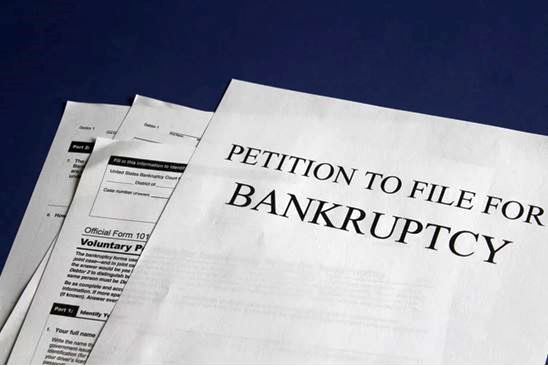Bankruptcy is a word that strikes a feeling of anxiety. If you’re bankrupt, it makes you feel like a failure. But, this isn’t necessarily the case. Household names such as Marvel Entertainment, Delta Airlines, and Converse have all bounced back from bankruptcy.
That’s not to say it is a common experience, but with some hard work, a good lawyer, proper research, and a little luck it is possible to overcome such a financially frightening experience.
There are three types of bankruptcy businesses you can file for: Chapter 7, 11, and 13. Which one you file for depends on the type of company and financial situation. Let’s go over what each type means, and how to know which type you fall into.
1) Chapter 7 Bankruptcy
Chapter 7 bankruptcy is sometimes referred to as liquidation. This is the option for businesses with overwhelming debts that have no chance of reorganization, and leads to a shut down of the company. Company assets are dispersed amongst creditors to pay off debts.
Sole proprietors, partnerships, corporations, and LLCs can all apply for chapter 7, but it is most beneficial for sole proprietors. Sole proprietors usually have a low amount of assets for trustees to collect and receive a discharge, which exempts them from paying back business debt.
In some cases sole proprietors are still able to keep their business running. If they provide a service (ex. freelance writer, financial planner, tutor, etc.) a trustee cannot claim that as an asset, so they can continue business. Partnerships, corporations, and LLCs may choose not to file for chapter 7 bankruptcies, as there are few benefits for them, and they do not receive a discharge.

2) Chapter 11 Bankruptcy
Chapter 11 bankruptcy is filed by partnerships, corporations, and LLCs that find it a feasible option to reorganize and stay in business. In a chapter 7 bankruptcy a trustee takes control of the business. For a chapter 11 bankruptcy, the management still has control to make business decisions.
In order to qualify for this type of bankruptcy a company must still be generating regular income, and must submit plans for reorganization and repayment of debts for court approval.
The goal of chapter 11 bankruptcy is to keep the company running with a realistic plan and manageable expenses. Bankruptcy can help the company sell off assets that are not performing, eliminate debt, and create new financing plans.
It also allows the company a chance to negotiate with their creditors. For example the business may get an extended amount of time to pay off a loan. Companies filing for chapter 11 also have access to a unique type of financing called debtor-in-possession (DIP) financing, and are eligible for DIP lending services.
3) Chapter 13 Bankruptcy
Chapter 13 bankruptcy is similar to chapter 11; it is filed with the intention of organizing a repayment plan with the court and continuing to stay in business. The difference is chapter 13 bankruptcy is for sole-proprietors. For sole-proprietors whose personal assets are intermingled with business assets, chapter 13 helps protect those personal assets more than filing for chapter 7.
Important Considerations to Remember
Filing for bankruptcy can bring structure to the hectic process of sorting out finances and rid you of some debts, but should be considered a last resort effort. It is not a simple solution, and the following detrimental effects should be considered before filing:
- Limited access to financing in the future
- Shows up for 10 years on credit score for sole-proprietors
- Time consuming
- Feasibility of business bouncing back
- Lawyer fees
If you are in a situation where you are considering whether or not to file for bankruptcy, it is important to do decide the best type of bankruptcy for your company. Do adequate research and weigh all the pros and cons. You should never make a rushed decision, and always contact a lawyer for professional advice.


Interesting, I never knew there was more than one kind of bankruptcy.